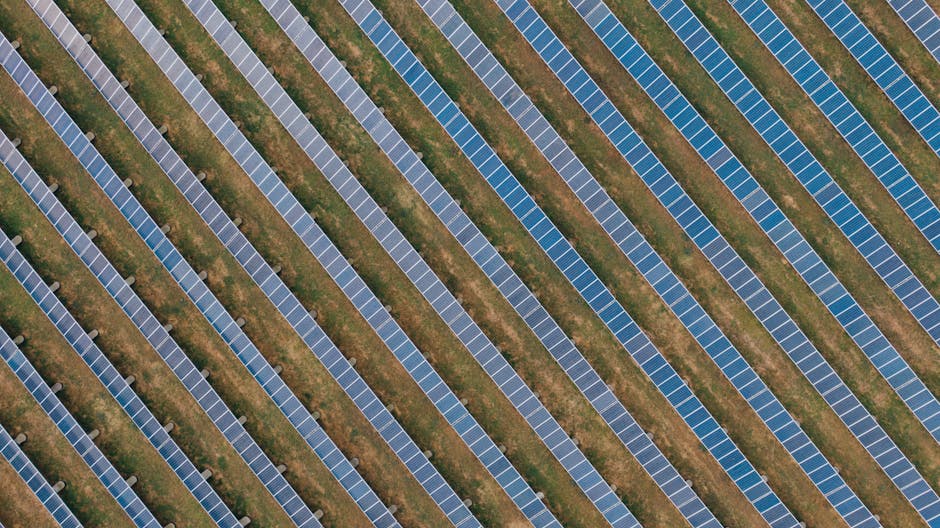How Much Does A 7.5 Kw Solar System Produce?
Solar energy is becoming increasingly popular as a sustainable and cost-effective way to power homes and businesses. If you’re considering installing a solar system, you might be wondering how much energy a 7.5 kW solar system can produce. In this article, we will explore the factors that influence solar energy production, the expected output of a 7.5 kW system, and how to maximize its efficiency. Let’s dive in!
Understanding Solar Power Systems
Before we get into the specifics of a 7.5 kW solar system, it’s essential to understand what a solar power system is and how it works.
- Solar Panels: These are the primary components that convert sunlight into electricity. They are made up of photovoltaic (PV) cells that generate direct current (DC) electricity when exposed to sunlight.
- Inverter: This device converts the DC electricity produced by the solar panels into alternating current (AC) electricity, which is used in homes and businesses.
- Battery Storage (optional): Some systems include batteries to store excess energy for use during cloudy days or at night.
- Monitoring System: This allows you to track the performance of your solar system and ensure it’s operating efficiently.
What Does 7.5 kW Mean?
The term “7.5 kW” refers to the system’s capacity to produce energy. Specifically, it means that under ideal conditions, the solar system can generate 7.5 kilowatts of power at any given moment. However, the actual energy production can vary based on several factors.
Factors Affecting Solar Energy Production
Several factors can influence how much energy a 7.5 kW solar system produces:
- Location: The amount of sunlight your area receives plays a significant role. Regions with more sunny days will produce more energy.
- Orientation and Tilt: The angle and direction of the solar panels can affect their efficiency. Ideally, panels should face south and be tilted at an angle that maximizes sun exposure.
- Shading: Trees, buildings, or other obstructions that cast shadows on the panels can significantly reduce energy production.
- Temperature: While solar panels need sunlight to generate electricity, extremely high temperatures can reduce their efficiency.
- System Maintenance: Regular cleaning and maintenance of the solar panels can help ensure they operate at peak efficiency.
Expected Energy Production of a 7.5 kW Solar System
On average, a 7.5 kW solar system can produce between 9,000 to 12,000 kilowatt-hours (kWh) of electricity per year. However, this number can vary based on the factors mentioned above. Here’s a breakdown of what you might expect:
- Daily Production: A 7.5 kW system can generate approximately 25 to 33 kWh per day, depending on sunlight availability.
- Monthly Production: Over a month, this translates to about 750 to 1,000 kWh.
- Annual Production: Annually, you can expect around 9,000 to 12,000 kWh, which can significantly offset your electricity bills.
Calculating Your Solar Energy Needs
To determine if a 7.5 kW solar system is right for you, consider your household’s energy consumption. Here’s how to calculate your needs:
- Review Your Electricity Bills: Look at your monthly electricity usage in kWh. This will give you a baseline of how much energy you consume.
- Estimate Your Solar Production: Use the average production figures (9,000 to 12,000 kWh annually) to see if a 7.5 kW system can meet your needs.
- Consider Future Changes: If you plan to add more appliances or increase your energy consumption, factor that into your calculations.
Maximizing Your Solar System’s Efficiency
To get the most out of your 7.5 kW solar system, consider the following tips:
- Regular Maintenance: Keep your solar panels clean and free from debris to ensure maximum sunlight exposure.
- Monitor Performance: Use a monitoring system to track energy production and identify any issues early on.
- Optimize Orientation: If possible, adjust the angle of your panels seasonally to capture more sunlight.
- Consider Battery Storage: Adding batteries can help you store excess energy for use during peak hours or at night.
Financial Considerations
Investing in a solar system can be a significant financial decision. Here are some factors to consider:
- Initial Costs: The upfront cost of a 7.5 kW solar system can vary widely based on location, installation, and equipment quality.
- Incentives and Rebates: Many governments offer tax credits, rebates, or incentives for solar installations, which can help offset costs.
- Long-Term Savings: A solar system can significantly reduce your electricity bills, leading to long-term savings that can pay off your initial investment.
- Increased Property Value: Homes with solar systems often see an increase in property value, making it a worthwhile investment.
Conclusion
A 7.5 kW solar system can be a fantastic investment for homeowners looking to reduce their energy bills and contribute to a more sustainable future. By understanding how much energy it can produce and the factors that influence its efficiency, you can make an informed decision about whether this system is right for you. With proper installation, maintenance, and monitoring, a 7.5 kW solar system can provide reliable energy for years to come.
FAQs
1. How long does it take to install a 7.5 kW solar system?
The installation process typically takes one to three days, depending on the complexity of the system and the installation site.
2. Can I install a solar system myself?
While some homeowners may




